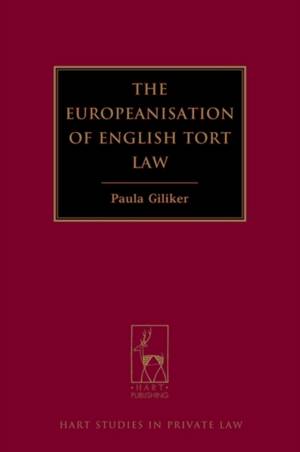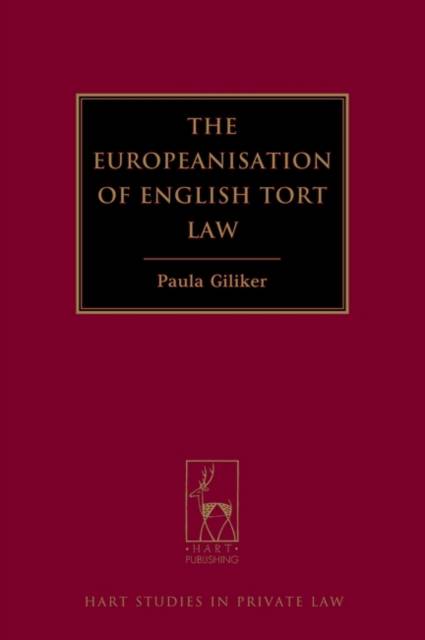
Je cadeautjes zeker op tijd in huis hebben voor de feestdagen? Kom langs in onze winkels en vind het perfecte geschenk!
- Afhalen na 1 uur in een winkel met voorraad
- Gratis thuislevering in België vanaf € 30
- Ruim aanbod met 7 miljoen producten
Je cadeautjes zeker op tijd in huis hebben voor de feestdagen? Kom langs in onze winkels en vind het perfecte geschenk!
- Afhalen na 1 uur in een winkel met voorraad
- Gratis thuislevering in België vanaf € 30
- Ruim aanbod met 7 miljoen producten
Zoeken
Omschrijving
Tort law is often regarded as the clearest example of common law reasoning. Yet, in the past 40 years, the English common law has been subject to European influences as a result of the introduction of the European Communities Act 1972 and the Human Rights Act 1998. EU Directives have led to changes to product liability, health and safety law, and defamation, while Francovich liability introduces a new tort imposing State liability for breach of EU law. The 1998 Act has led to developments in privacy law and forced courts to reconsider their approach to public authority liability and freedom of expression in defamation law. Has Europeanization led to changes to the common law legal tradition or has the latter proved more resistant to change than might have been expected? This book identifies how English tort law has changed as a result of Europeanization - broadly defined as the influence of European Union and European human rights law - and examines how such developments have impacted traditional common law reasoning. (Series: Hart Studies in Private Law - Vol. 11)
Specificaties
Betrokkenen
- Auteur(s):
- Uitgeverij:
Inhoud
- Aantal bladzijden:
- 262
- Taal:
- Engels
- Reeks:
- Reeksnummer:
- nr. 11
Eigenschappen
- Productcode (EAN):
- 9781849463195
- Verschijningsdatum:
- 24/03/2014
- Uitvoering:
- Hardcover
- Formaat:
- Genaaid
- Afmetingen:
- 160 mm x 234 mm
- Gewicht:
- 544 g

Alleen bij Standaard Boekhandel
+ 373 punten op je klantenkaart van Standaard Boekhandel
Beoordelingen
We publiceren alleen reviews die voldoen aan de voorwaarden voor reviews. Bekijk onze voorwaarden voor reviews.









